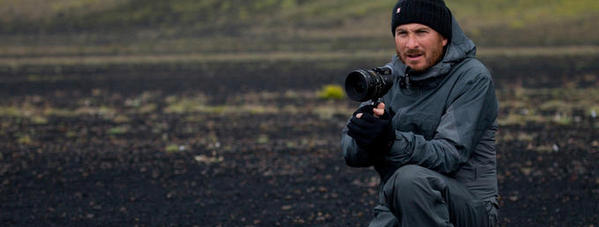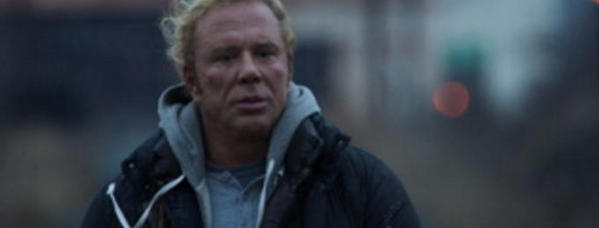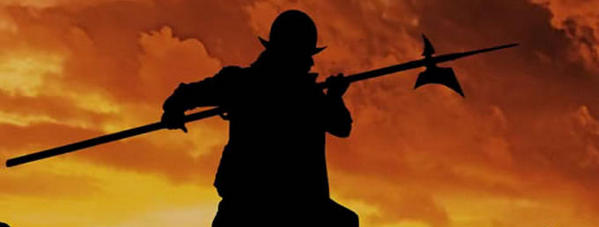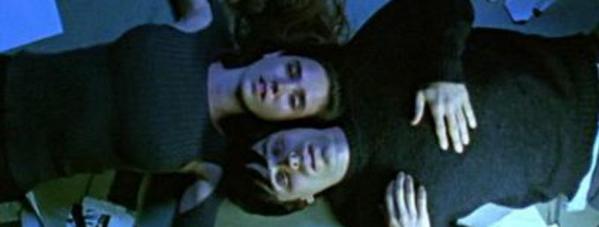FILM FINANCING: Darren Aronofsky on How The Bible Inspires Him and The Future of Indie Film
Before taking home the 2014 Honorary Maverick Award, handed out every year by the Woodstock Film Festival in upstate New York, Darren Aronofsky spoke with Indiewire about what the honor means to him.
Since directing his debut feature, the award-winning “Pi” on a budget of $60,000 raised from family and friends, back in 1998, Darren Aronofsky has established himself as one of the few truly auteur directors who have the clout to bring their creative visions to cinemas. From “Requiem for a Dream” and “Black Swan,” to “The Wrestler,” “The Fountain” and “Noah,” Aronofsky has consistently blurred the artificial lines between good and bad in the most original ways. Though he’s pioneered the use of special effects in his films, ultimately, Aronofsky’s films rely on strong stories to inform their visual style. Since his work is driven by creativity and an independent vision, it’s no surprise that the Woodstock Film Festival is awarding him the 2014 Honorary Maverick Award.
Indiewire recently chatted with the director about what it means to be a maverick, his thoughts on digital vs. film and the Bible as inspiration for his films.
According to the description from the Woodstock Film Festival, the award is for people “whose life and work is driven by creativity, independent vision, and social activism.” With that definition in mind, do you consider yourself a maverick?
You know it’s funny, the first film festival I ever got into with a short film I made when I was an undergrad, I think it was called the Maverick Film Festival, I think it was in San Jose. I don’t think it’s around anymore, it may have turned into something else, but I remember having no idea what that word maverick meant, and looking it up in the dictionary.
You have to remember, I’m a public school kid from Brooklyn, so my verbal skills were never quite my strength. So I looked it up and I went, “oh, that’s a really cool thing to name for a film festival.” And to win an award named after that is great. I’m just excited because Woodstock, being a New York City kid, and I guess being an American, Woodstock has this incredible…you know, it’s such an iconic town and the ideas behind it are great. So getting it from that city is really cool because I think what they did in 20th century history, that town, was such a defining moment. So it’s kind of cool to be linked to it through this award.
So you feel that the festival carries on that counter-culture legacy?
I don’t know actually, I haven’t been to the festival. It’s my first time up there, so I don’t really know much about the festival. But I do know about the town. I’ve been up there several times and it’s a great place.
Who are some of your personal mavericks?
For some reason, I always think of John Cassavetes when I think of a maverick.
With good reason!
I don’t know where that link came from, if there was some type of John Cassavetes maverick award somewhere, but somehow those are linked in my head. When you mention the definition, I think that’s very truthful. And definitely as a film student I was watching his movies. I’ve been watching his movies for a very very long time and they’ve been a big inspiration for me.
Maverick makes me think of someone outside of the establishment and though you started out as sort of an indie wunderkind, now that you have made one of the biggest studio box office successes of the year, do you feel like you’re part of the establishment?
For me it’s always been about being an independent filmmaker, it doesn’t matter if you’re making films within the Hollywood or some other filmmaking system or not. It’s more when there’s a division between the creative control, between the money and the filmmakers. I don’t know about that idea of being in the system or out of the system. I think when you’re trying to make films that are different, beggars can’t be choosers. And you have to go to a place that seems to align with your aesthetics as much as possible, then have a marriage, then dive into it and try to make the best film you can. Something like “Noah,” the only people that are supporting films of that scale and have the expertise to make films of that level because they’ve done it many times, it made sense to work with Paramount and Regency.
And also in terms of being able to distribute them internationally.
Exactly, exactly. To have the incredible support that they gave us in releasing the film and getting the word out there that we made the film. They were great at it.
Speaking of “Noah,” which was an incredible film that elicited some really strong and very mixed responses, and then went on to be this huge box office success in the U.S. and internationally, what did you learn from that experience? The reception of the film, did that go at all like you expected?
It was strange because I’m still learning from it. And I think the studio which has done this many times is learning from it. It was a very very different experience for everyone involved. And things didn’t play out in any way that was expected or seen before. And that happened with the making of the film as well as the release of the film. So I’m still processing to be honest about it all. There were a lot of vocal people who had a lot of different opinions. It didn’t matter if you were a believer or a non-believer or a filmgoer, the reactions were really really varied. But I think I get that on all my movies. This was just on a much bigger scale, and because when you’re working on a title that has a lot of preconceptions to it, it just magnified it. But I think if you look at everything I’ve done before, the reactions are always all over the map. For me that’s what’s exciting is having discussion.
A big goal for me was to take this Bible story, which really belongs — it’s one of humanity’s oldest stories and it belongs to not just the three main religions that subscribe to it but it belongs to everyone on the planet because it’s one of the great antiquities, one of the great treasures, one of the great literary works, like “Ulysses,” like “The Odyssey.” So taking that kind of source material and translating it to the big screen for the first time was to hopefully present it in a way that belonged to everyone, not just one group. And I think that suddenly a lot of the groups that had felt they had ownership of it got very disturbed by that. I think that was going to happen because the exercise itself was to say this is a mythology that belongs to everyone and anyone can take these stories and interpret it to make meaning out of their life, out of their experiences, and out of the world like we do with all myths. Sort of like you take the story of Icarus and apply it to “don’t have too much hubris.” There are great messages in these ancient myths that can apply to us and the reason we’ve been telling these stories over and over again is because they’re so rich with ideas that can apply to us.
Look, I think they’re such great, powerful stories and I think…most of my films reference parts of the Bible so I imagine it will be a source of inspiration for a long time.
Getting back to this idea of mavericks, mavericks are people who are always pushing the boundaries. In what ways do you want to continue to push the boundaries?
[Laughs] I don’t know. Consciously, it’s definitely not a goal to push the boundaries. It just sort of comes out that way. I don’t go into it with a punk attitude to sort of make noise. It’s more like that’s kind of what I’m driven and inspired to do. I think I go into it — and “Noah” is a perfect story. As a child, I had great love for the story and over the years, I have revisited it and would always find I was able to apply the story to what was going on in my life and also what was going on on the planet and so I came to “Noah” with love to tell that story and to share it in a unique way and to reinvent it for the 21st century audience. That was the approach. It wasn’t “hey, we’re going to mess around with this story” in any way. It was more positive.
The same thing with — maybe my most aggressive film would be “Requiem for a Dream,” that was a love for the material and for what Hubert Selby Jr. had written, the way he captured the spirit of those four characters and brought them to life in such a rich and human way. That was the reason I wanted to make it, was to capture that. It wasn’t to disturb audiences in the way that it did. I think if you go into it trying to be disruptive and disturbed. That’s definitely not my approach. I don’t come into it pushing boundaries. I come into it with — the only thing I could have when I approach a film is some passion for the material but that’s what gets me out of bed every morning is that passion.
Looking back even further to “Pi,” how has indie filmmaking changed since you started out? Would “Pi” have a shot at theatrical today or would it be direct to VOD, which is not necessarily a bad thing?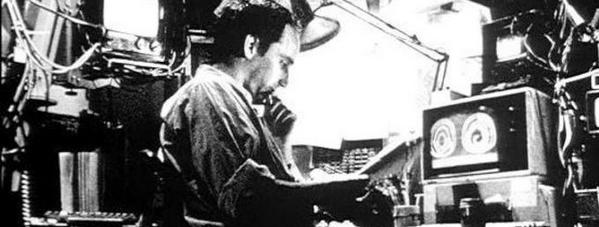
[Laughs] No, it’s not. I think the VOD window is really interesting for filmmakers and even as film viewers. I’m constantly, as a parent, wishing there were more options on VOD. Films come out and I get really excited to see the movies and then I have no way to see them until they reach me on video if I don’t get to the cinema.
Culled from INDIEWIRE
Richard Green Documentary, ‘I Know Catherine, The Log Lady’: Premiere in NYC, LA May 9th
Lynchian Doc I Know Catherine, The Log Lady Makes Hollywood Premiere 4/17, Rollout to Follow
In Camera by Naqqash Khlalid Launch on VOD April 29
Naqqash Khlalid’s Directs Nabhan Rizwan. In Camera stars an EE BAFTA Rising Star Award Nominee.

